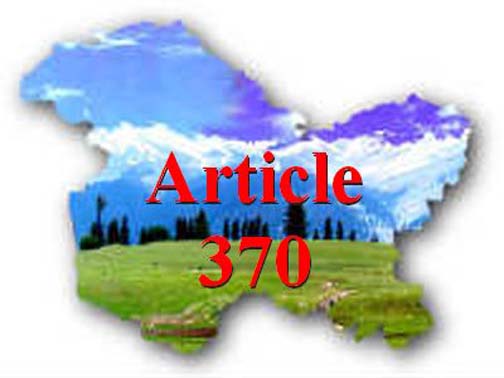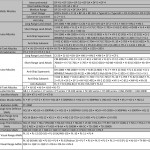
The response of the people across both regions to the ongoing elections for the District Development Councils (DDCs) is a curt message to the status quo lobby led by the Peoples’ Alliance for Gupkar Declaration (PAGD) popularly also known as Gupkar Alliance. The vast majority of people standing in long queues outside the polling booths in bone-chilling cold while responding to the news reporters do not mince words while stating that they are voting for development and employment. It is their sole agenda since they have deprived of it for long. It is therefore clear that 60 year rule under the shelter of Article 370 failed to provide the basic amenities of road, drinking water and electricity to the people at large. Connectivity, education, health and basic amenities still elude the people despite huge amount of funds received from successive central governments. Where did all these funds vanish? Reports are surfacing of projects shown as completed in files but not actually existing on the ground. Voters are openly accusing their leaders of having cheated them time and again and becoming unreachable and inapproachable after the elections are over leaving them to their plight which has not changed during the last seventy years.
People have also realised that they were emotionally exploited with slogans like self-rule, greater autonomy, azadi while enough autonomy was granted by article 370. Had these leaders been serious and committed to the welfare of the people they could have easily provided them the basic facilities of road, water and electricity but instead they chose to mislead them with false slogans and dreams of greener pasture while lining their own pockets with the generous assistance received from the Central Governments. This gave rise to a group of elite and privileged families who assumed controls of not only the government but other organs of administration as well. While these families prospered, ordinary people continued to live a life full of miseries. Gradually, they grabbed so much of power that they began to consider themselves as invincible and permanent rulers to the extent that the people were scared of questioning them. Gupkar Road, a signature elite landmark residential area, became the power centre of J&K favouring their cronies and relatives while the rest were left to look upto them as their Mai Baap who occasionally showered their blessings on them in form of favours like government jobs or appointments in local bodies which largely remained unelected.
As claimed by the leaders of the Gupkar Alliance, Article 370 was meant for protecting the Kashmiri identity. Kashmir’s identity world over was recognised as a multilingual, multi-faith, multi-cultural plural society famous for peaceful co-existence. But these very leaders are responsible for the murder of famous Kashmiri identity. 370 was misused to promote secessionism, separatism, radicalisation leading to onslaught on the Kashmiri Pandit community, the indigenous community of the Valley, forcing them to flee leading to large scale exodus and ethnic cleansing. Was this the purpose of inserting Article 370 in the Constitution of India? Fears expressed by Dr Ambedkar about the future of Hindu and Buddhist minorities in Kashmir proved true. Taking shelter of 370, Gupkaris refused to include the word “secular” in the preamble of the State Constitution after its inclusion in the Constitution of India.
Article 370 was used by the Gupkaris to institutionalise corruption in J&K since none of the progressive anti-corruption laws passed by the Parliament were made applicable in the state. This encouraged the Gupkaris and their cronies to resort to unbridled corruption without fear of being held accountable or questioned. Rules were not only ignored but blatantly bypassed with impunity. The skeletons which emerged in the cupboard of Jammu & Kashmir Bank Ltd post revocation of 370 and the Roshni Scam dubbed as the biggest land scam of the country are just a few examples of institutionalised corruption unleashed by them.
370 was also used by the Gupkaris to deny the devolution of powers to grassroots level by preventing application of 73rd and 74th Amendments and not holding elections to the Panachayt Raj Institutions (PRIs) and Urban Local Bodies. They were loath to centre of power shifting from Gupkar Road to the towns and villages taking shelter under 370. It was also used to promote regional and religious discrimination. 370 was used as a bargaining tool with the central governments which usually succumbed to their pressure tactics in order to appease them. Successive central governments preferred to rule J&K through them rather than reaching out directly to the people and understanding their problems.
Thus, the decision taken by the Government of India to revoke Article 370 was welcomed by the vast majority. The process to undo the ills and woes of 70 year of misrule was set in motion with all sincerity. It certainly was not to the liking of the Gupkaris and their cronies. The subdued response of the people much against their hopes of bloodshed and huge protests came as a rude shock to them. The government was falsely accused of use of force and suppression. The government took precautionary measures to prevent divisive elements from creating law and order problems causing inconvenience to common men. These measures proved successful.
A slew of measures were taken by the government thereafter to undo the ill-effects of 370 as enumerated above. These included elections to the second and third tiers of PRI by holding elections for Block Development Councils (BDCs) and District Development Councils (DDCs). Urban Local Bodies (ULBs) elections were also held. Ongoing DDC elections are unique in the sense that certain deprived sections (West Pakistan Refugees, Valmikis and Gorkhas) are voting for the first time. (Earlier they could vote only for Parliamentary elections). 73rd and 74th amendments have been made fully applicable fulfilling the long pending demand of the people. There are reserved seats for the women and Scheduled Tribes (STs) for the first time. A new crop of grassroots level leadership is emerging which augurs well for the future.
Unhappy with the tremendous response to revocation of 370, the status quo lobby joined hands to form the PAGD with avowed aim of struggling for return of 370 and statehood. They also announced that they do not recognise the J&K Reorganisation Act 2019, whereby the state was divided in two union territories (UTs) and all central laws made applicable, and any decision taken thereof. However, DDC elections being conducted under a notification using same Act, forced them to make a U-turn. Initially, lofty claims were made of elections only as a measure to stop the growth of Bharatiya Janata Party but soon they began to pronounce it as a referendum for restoration of 370. Appeals are being made to vote for the candidates of PAGD so that they can bring back 370. There can be nothing more farther from truth than this since DDCs are nowhere empowered for law making? Yet they are resorting to their old trick of false promises to people. Going by the demand of the people for development and employment, it appears they may not succeed this time and restoration of 370 will remain an unfulfilled distant dream like the greater autonomy or self-rule.
Gupkaris and their sympathisers are trying to win over the people by creating a fear psychosis among them. They oppose each and every action of the government on the plea that it is meant to kill their identity and change demography. Baseless accusations to emotionally exploit the populace. One of the lingering fears created among the youth that their jobs will be snatched. The reality is to the contrary. J&K now has 100% reservation for locals in all jobs including gazetted and non-gazetted. No other state/UT in the country enjoys this unique privilege.
The amended land laws were also used to create fear among the people claiming that their lands would be snatched and forcibly purchased by outsiders. People are being confused by quoting protection enjoyed by a few states under Article 371. There is no comparison between 370 and 371, since 371 is a permanent provision and does not promote secession and separatism. Often people are misled by drawing comparison with neighbouring Himachal Pradesh stating that the state has special provision protecting their land rights. Again the fact is to the contrary. Section 118 in Himachal is restrictive and does not put an absolute ban on the sale and purchase of land and property in Himachal. It has provisions through which, with the approval of government, anyone can buy land and property in the state. While the new land law of J&K totally bans the sale of agricultural land to other than the existing agriculturists of J&K. People will soon realise that these lies are being told just to discredit the new laws and create a pitch for restoration of 370.
It is the fear of being questioned and held accountable for their misdeeds including unbridled corruption that is haunting the Gupkaris. That is the main reason for their demand of restoration of 370. But the common man has understood how 370 was misused by these leaders to deprive them of basic amenities while filling their own coffers. They are happy with the much awaited change they were yearning for and are hopeful that the representative they choose for the DDC will meet their much wanted basic needs. With this hope and visualisation of brighter future 370 has become an irrelevant issue for them.
With each passing day, the Gupkaris are getting disappointed because of the obvious writing on the wall. Gupkar Road will no more enjoy the status it once did. 370 is gone for good. Bye bye 370, welcome Naya Jammu Kashmir.




